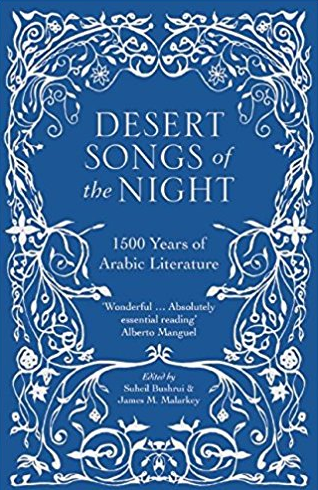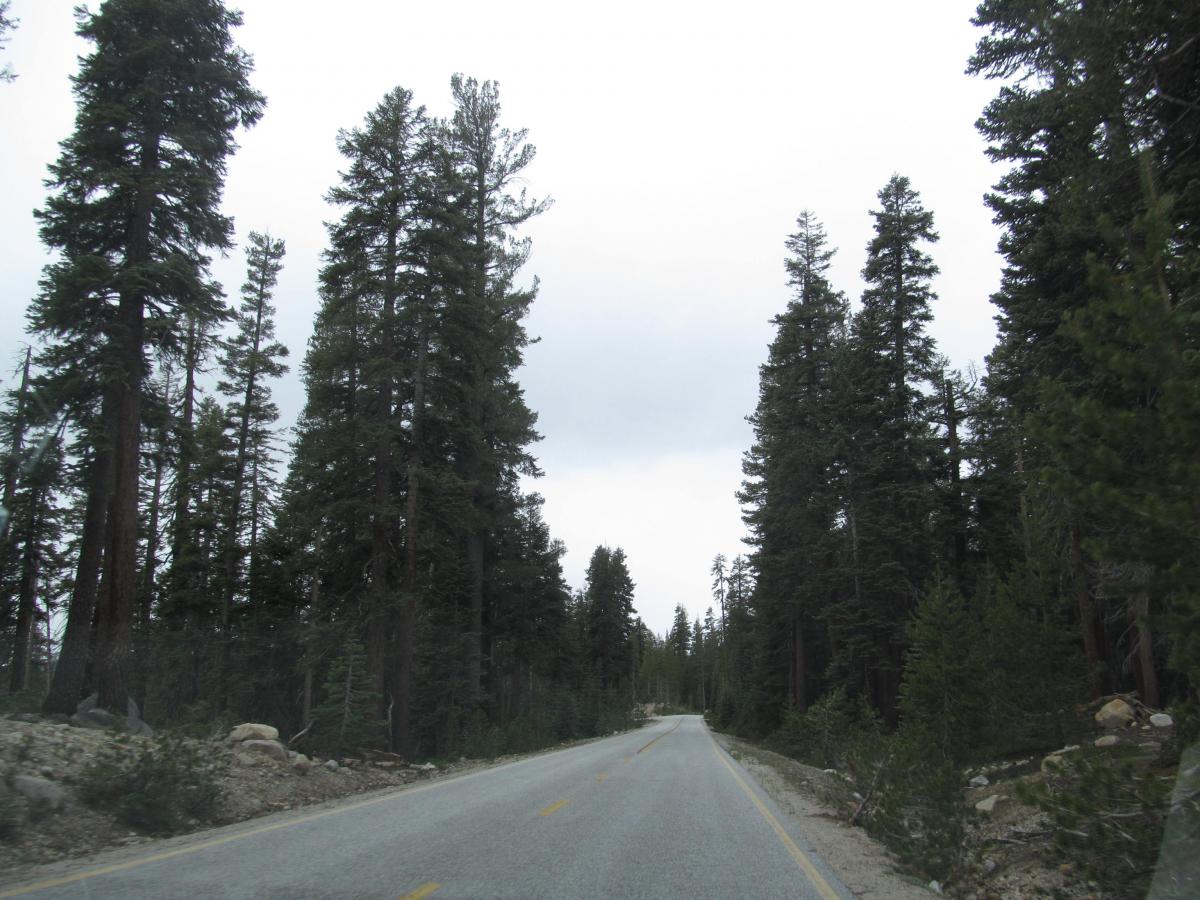MassLive reports on the upcoming Amherst College 2016 LitFest, which will occur from March 3-5 on the Amherst College campus.
February 2016 Poetry Feature
Please join us in greeting new contributors Dolores Hayden and Zack Strait—and a big welcome back to Robin Chapman and Alex Cigale.
Review: Desert Songs of the Night: An Anthology of 1500 Years of Arabic Literature
Book by SUHEIL BUSHRUI and JAMES MALARKEY
Reviewed by

Suheil Bushrui and James Malarkey’s anthology, Desert Songs of the Night: An Anthology of 1500 years of Arabic Literature, is not aptly named. The romantic title conjures up an image of a bard, reciting poetry and telling stories in the Arabian desert by a fire: the very best poetry and tales from the Arabic literary tradition. In fact, the anthology is a collection of a wide range of texts, reflecting the rich cultural history and thought of Arabic heritage: chivalric verse, political, philosophical, and legal treatises, religious texts, moralistic essays, folktales, travel writing, excerpts from plays and memoirs and modern narrative poetry.
The collection is tempered by the academic backgrounds and interests of the two editors. Suheil Bushrui, who died last year at 84, was a distinguished critic and translator, an authority on Yeats and Kahlil Gibran and the founder and former director of the George and Lisa Zakhem Kahlil Gibran Center for Values and Peace at the University of Maryland. James Malarkey was Professor Emeritus at Antioch University, the former Chair of Humanities and General Education with past stints at universities in Algeria and Beirut. He is an anthropologist, specializing in Algerian politics.
Rabbit’s Foot
By SAGE CRUSER

My dad’s black mutt slunk up to the front porch, looking slowly back and forth and crouching down low to the ground. I knew that body language: she was unsure of how a gift she had for us would be received. Her mouth was full of something. “Spit it out, girl,” I commanded. She gently separated her jaws and rolled a small brown ball of fur off her tongue. It was a wild baby rabbit, so small that at first I thought it was a mouse. But then I saw its ears and pink nose, and, as any nine-year-old girl would, I jumped and let out a squeak. Then I composed myself by taking a deep breath and patted my dog on the head. “Good girl, Macy. I’ve got it from here.”
Ask a Local: Krys Lee, Seoul, South Korea
With KRYS LEE

Your name: Krys Lee
Current city or town: Seoul
How long have you lived there? Outside of my schooling years (elementary school to university), and a year in Rome, I’ve lived in Seoul all my life. So that would make it over half my life?
Salt and Light
Seaside, OR
Two days after my birthday, we drove over the coast range to Seaside. It was a Monday, and I’d taken off from work, knowing I’d need a recovery day after the party that had lasted from Saturday afternoon till Sunday morning. Some might think that lazy or irresponsible; I think it’s just knowing yourself.
The weather had been sunny when we left our place in Newberg, a small town south of Portland in the Oregon wine country, but by the time we started up into the steep ridges separating the Willamette Valley from the ocean, the rain had started, which wasn’t a surprise, as it had already been one of the rainiest winters on record: in December there had been 25 straight days of rain, which is in the ballpark of 40 days and 40 nights. Jane took a nap, while I drove squinting through the water-blurred windshield. I always teased her about being able to fall asleep anywhere, and I smiled now at how peaceful her face was while I guided our 25-year-old Pathfinder—which we’d bought from a towing company for 500 bucks after it had been abandoned in downtown Eugene—along this curving road lined by 200-foot-tall fir trees growing up from the slopes below.
Amherst College LitFest 2016
Friday Reads: February 2016
How much more palatable is any dish when “imbued with the stories of home”? We’re exploring that this month in our recommendations, which variously braid entertainment and education in their reading experiences. Grow as a writer, a poet, a consumer, a human being—and do it while laughing, remembering home, or teetering on the edge of your seat.
Recommended:
The End of Vandalism by Tom Drury, The Door by Magda Szabó,Ennui Prophet by Christopher Kennedy, Bread, Wine, Chocolate: The Slow Loss of Foods We Love by Simran Sethi
Horizontal Feminists: An Interview with Alexander Chee
Alexander Chee’s new novel The Queen of the Night, set almost entirely in France under the Second Empire (1866–1872), is the first-person narrative of a silver-voiced American orphan who maneuvers her way to acclaim as an opera singer, via the circus, can-can dancing, prostitution, and service as the Empress’s maid. Three desires drive Lilliet: to free herself from the tenor who literally owns her (having bought her from a whore house), to become a singer, and to reunite with the man she loves. Chee’s novel sumptuously recreates the intertwined worlds of les grandes horizontales or courtesans, the opera, and the court of Emperor Louis-Napoléon and Empress Eugénie with its spies and secret police.
This winter in Manhattan, New York, The Common’s Book Reviews Editor Julia Lichtblau talked at length with Alexander Chee about his forthcoming novel.
Review: The Queen of the Night
Book by ALEXANDER CHEE
Reviewed by

Every so often a contemporary novel makes me want to go back to college—not because I don’t get it, but because the book induces a craving to know everything about its world. Reading The Queen of the Night, Alexander Chee’s hefty second novel, ten years in the making, I was ready to fill out the applications for a Master’s in 19th century French history and literature (with a minor in opera).
Set mostly in France under the Second Empire, (1866–1872), it’s the first-person narrative of a silver-voiced American orphan and master of self-reinvention, who becomes a European opera star and brushes the pinnacles of European power before crashing back to earth in the New World. Her rebirth wouldn’t be out of place on reality TV.






